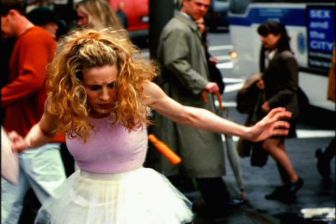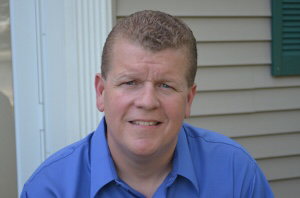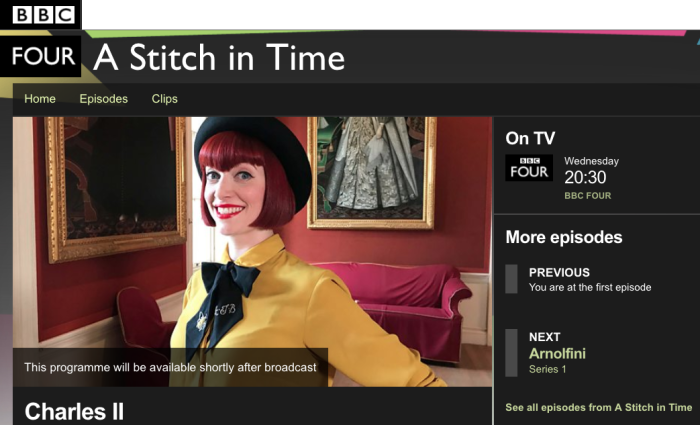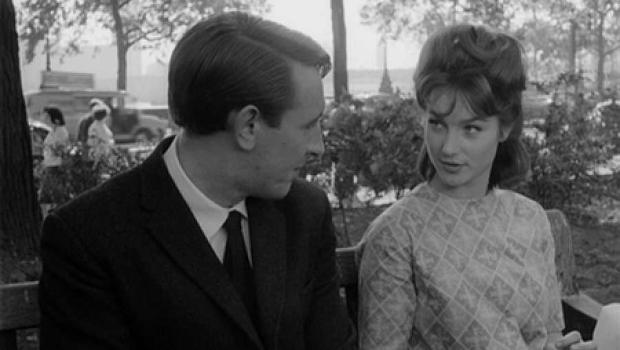
The night is dark and windswept, with rain in the air and an angry sea pummelling the cliffs. A lone figure silhouetted against the darkening sky makes his forlorn way along the desolate cliff top path. This is Chris Corner coming round for another Film Night. Supersonic Saucer (1956) was the first part of our double bill, and we watched it with childlike pleasure (see previous review). The second film, a far more grown up affair, required quite an extensive brain recalibration to appreciate fully. I’m not sure we achieved that on the night, so I watched it again for the purposes of this blog post, and it certainly benefits from a second viewing.
Lunch Hour (1962) was written by Rumpole of the Bailey creator John Mortimer, originally as a stage play. This is evident in its economy of characters (Girl, Man, Hotel Manageress) and its reliance on dialogue rather than location. It has also been adapted as a radio drama and a BBC Thirty Minute Theatre presentation as Kings Cross Lunch Hour (1972) featuring Pauline Collins and Joss Ackland. The stage play starred Wendy Craig, an apt choice for a piece about an extra-marital fling, as Mortimer had a brief affair with Craig which resulted in the birth of her second son.

Another Bryanston Films production, the date of the copyright is stated as 1962 in the opening titles, although the IMDb gives the release date as 1961 which seems to be when the stage play was first performed. The credits appear over moving railway tracks intersecting and separating, giving the impression of travel. A visual clue to the unravelling and splitting of the narrative that occurs as the story progresses?
We never learn the characters’ names, but a young wallpaper designer (Shirley Anne Field) and a married man who works at the same company in a less creative capacity (Robert Stephens) are making early attempts at having an affair. Finding it difficult to get any privacy during their numerous lunch hour rendezvous, he books them in at a cheap hotel as a married couple. Their courtship and failed attempts to kick things off are told in flashback, him being hesitant and faux-chivalrous, she more poised and sassy.
The sexual politics of the 1960’s workplace is examined as the communal tea trolley comes round and all the employees congregate around it for a mid-morning break. The females are generally looked on as fair game by the Brylcreemed and suited executive types. As one particularly oily Lothario announces, girls from art school pose no special problems. The factory premises, the design studio where the women paint wallpaper motifs, the offices where the chaps strive to look more important than the next man, and the print room with its presses rolling out huge quantities of finished wallpaper, are an interesting window into the relatively recent past. Airy, light interiors without a computer screen in sight and people walking from one department to the next to convey a message, rather than simply emailing.
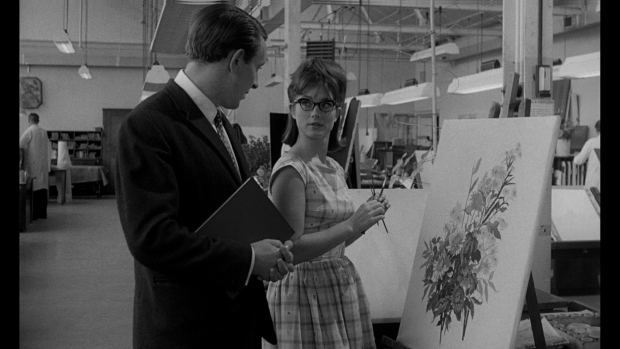
Stephens is somewhat naive and out of his depth as he first meets Field by helping her pick up a folder of dropped drawings from the office floor. Impossibly luminous and magnetic, she is far more assured and knowing, obviously skillful at thwarting greasy would-be suitors. In an interview for Radio 4’s Film Programme, Shirley Anne Field speaks about how much she enjoyed the making of Lunch Hour. She mentions John Mortimer’s numerous changes to the script, which he based on listening to the cast’s casual conversations and altered on the fly. There is certainly a high premium placed on rhythm and language.

The story concocted by Stevens as to why a respectable man and a 24 year old girl require a room for an hour during the middle of the day provides the springboard for Field to dive into realms of kitchen sink fantasy that seemingly become an alternative reality. An alternative reality that is based in Scarborough, of all places. The tables are well and truly turned by the girl, the question is whether she’s knowingly calculating what she’s doing or just getting carried along on a wave of untruth. I personally plump for the former.
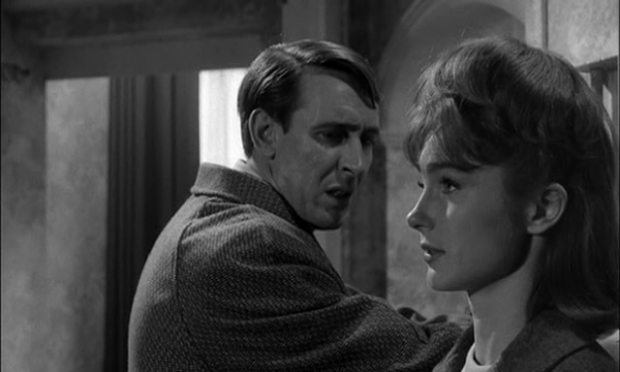
SHIRLEY ANNE FIELD ON THE FILM PROGRAMME: RADIO 4 2011
Advertisements Share this: